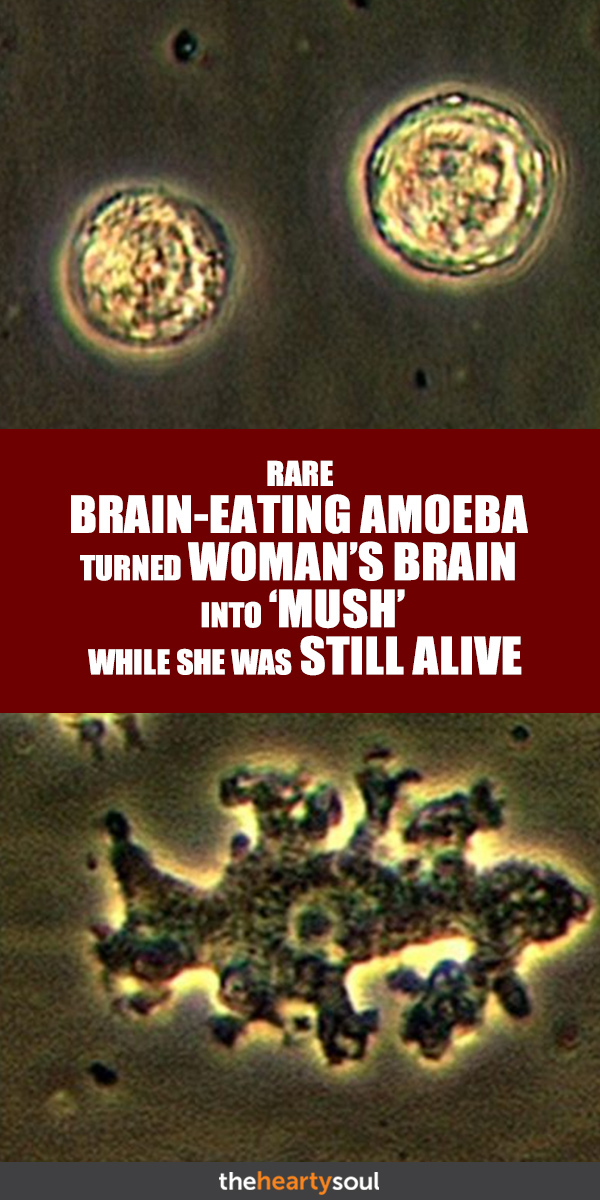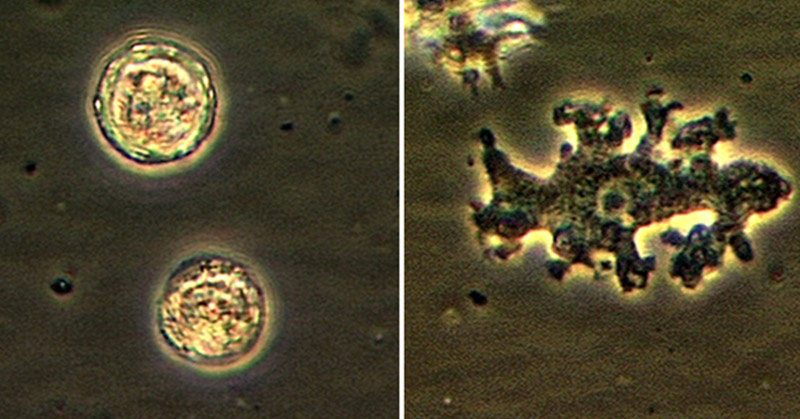Doctors came across something they never suspected while carrying out brain surgery on a 69-year-old woman in the US: a slushy mess of dead brain tissue.
As reported in the International Journal of Infectious Diseases, the story began when a Seattle-based woman visited the doctors with a nasty chronic sinus infection. She was advised to try and flush out her sinuses and nasal cavity using water. However, instead of using sterile water, she used tap water that had been run through a store-bought filter.
A year on, the woman started to develop some unusual symptoms, such as a strange red rash around the outside of her nasal passage.
After experiencing an intense seizure and an apparent loss of brain cognition, doctors started to investigate the possibility of the problem being in her brain.
A CT scan showed that she had 1.5-centimeter (0.6 inches) lesion at the back of her skull. It appeared to be a relatively common form of brain tumor, so they promptly put her on the operating table.
“When I operated on this lady, a section of her brain about the size of a golf ball was bloody mush,” Dr Charles Cobbs, a neurosurgeon at Swedish Medical Center in Seattle, told The Seattle Times.
It turned out, her brain was riddled with a brain-eating amoeba called Balamuthia mandrillari.
“There were these amoeba all over the place just eating brain cells. We didn’t have any clue what was going on, but when we got the actual tissue we could see it was the amoeba,” Cobbs added.
These single-celled organisms can be naturally found in the soil and freshwater across the world. It appears that this woman became infected with the amoeba through flushing of her sinuses with the tap water.
It is possible for infections to spread from the nasal area to the brain due to the blood supply of the human nose and surrounding area.
Although this is extremely rare, an elderly person persistently flushing unsterilized water up their nose is a sure fire way to raise those odds.
But fear not, you shouldn’t be terrified of your tap water.
In healthy people with good immune systems, an infection is extremely rare. There have only been around 200 reported cases of infection worldwide, although around 70 of those cases were in the US alone, according to the US Centers for Disease Control and Prevention.
Although extremely rare, B. mandrillari is deadly, with almost 90 percent of cases of infection resulting in death.
Unfortunately, this woman became one of these fatalities, dying just one month after the surgery.

